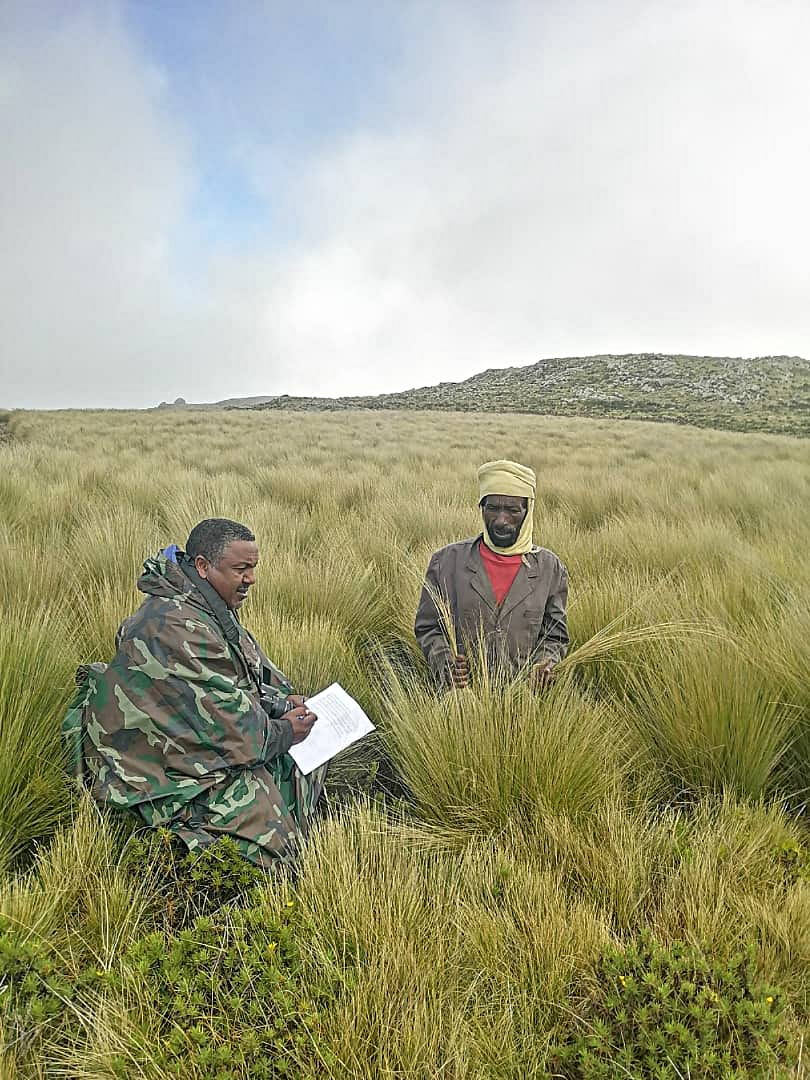

When it comes to conserving the endangered Ethiopian wolf, we never give up. In Delanta, where wolves have recently returned after devastating outbreaks of disease, we have been working with local communities to promote ways of earning an income that is compatible with protecting the environment and its wildlife.
Where once the land was ploughed to sow barley, guassa grass has been planted – this native, multipurpose plant can be sold or used by families for thatching, weaving and feeding livestock. It also creates shelter and provides food for the rodents that Ethiopian wolves prey on. With plenty of food to hunt, the Atse Gedel pack should have a better chance of thriving in their new home.
The possibilities for both people and wolves are exciting, but for these initiatives to work we must make sure they meet the needs of those involved – their lives are, after all, intimately entwined with those of the wildlife and we can’t create lasting conservation solutions without their help. After the first guassa plantations had been set up, EWCP staff interviewed growers and met with shepherds and other community members to hear their thoughts on guassa growing and their opinions of Ethiopian wolves and other mammals.
The feedback we received gave us evidence that the guassa growing initiative is having positive impacts on household economy and habitat conservation. Young people in Delanta are taking an interest in these initiatives, which is very promising for the future. Agriculture encroachment is slowly changing into grassland restoration, which we hope will encourage the wolf population to steadily recover.

Disease control and improving livelihoods to conserve the Afroalpine habitat can address the needs of wolves and people - to do all these conservation works we call upon the wildlife-loving global community to help us. Together we can make a difference!